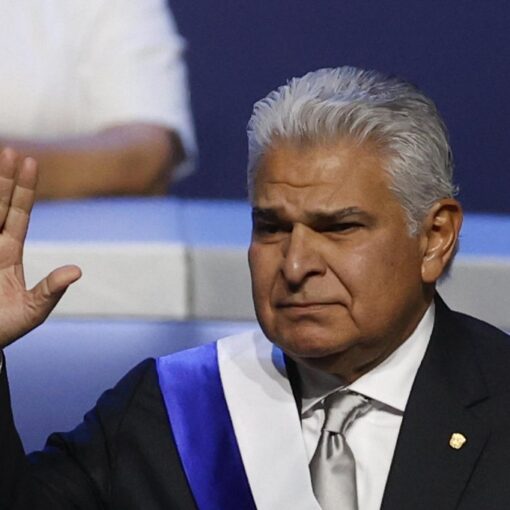While the government and a good part of Costa Ricans worry about drug trafficking, organized crime and the record numbers of homicides with 907 cases last year, a silent epidemic is advancing at high speed on the road.And it is that Costa Rica is literally experiencing a bloodbath due to traffic accidents.
In 2022, the country registered 847 people who died due to a crash, rollover or excessive speed, among other causes, while last year, the figure rose to 855, according to statistics from the Judicial Investigation Agency (OIJ) who, unlike the Traffic Police, does follow up on people who are badly injured after an event.
This is the second and third largest record in history for Costa Rica, since in 2016 a total of 890 people died behind the wheel.However, it is clear that there is a trend, according to the experts consulted.
A silent epidemic
“Right now, we have a silent epidemic. Fatalities are increasing and nothing the State has done so far has even managed to contain them,” said David Gómez, Sustainable Mobility consultant.In that sense, speed is the main enemy of the authorities.For the first two months of this year alone, more than 500 drivers have been caught driving more than 20 kilometers per hour above the permitted limit.
“The rush to get to work, to the doctor’s appointment, to the study center should not be the north that prevails on the road. In the first two months of this year, every 2 hours and 34 minutes, on average, a person was caught at the wheel abusing speed, at least 20 km above the maximum limit,” said Oswaldo Miranda, Traffic Police Director.
Enforcing laws, raising awareness and having safer road design should be the direction that Costa Rica follows in terms of road safety.Likewise, greater police resources are required and an automatic fine system using cameras is put into operation.
“More effective control is needed, based on multiplying the scarce human resource and using photomult technology. Tightening laws is useless if drivers are not afraid of being penalized because they know that it is highly unlikely,” said Roberto Guzmán from Chepecletas.
The proposed solutions:
Road safety education is essential to reduce road deaths
Speed reduction through physical interventions in infrastructure, which involves redesigning certain intersections and conflict zones
Regulate motorcycles disguised as bikes so that they comply with all laws
Promote road safety education from preschool age
Increase traffic police personnel
The implementation of speed cameras and sensors, as had already been done previously, to generate automatic fines for speeding
Carry out operations outside bars and other places where liquor is consumed
Higher financial penalties for life-threatening behavior
Loss of license for 3 years for dangerous actions
Restrict speed in urban centers to no more than 30 kilometers per hour
Communication campaigns that help raise awareness about the issue.

Source link
TCRN STAFF



